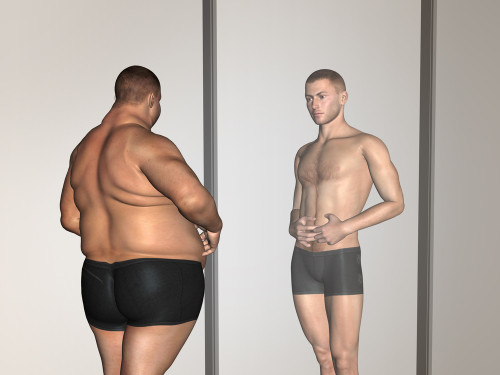
A NEW FOOD INTOLERANCE – CARBOHYDRATES
While many patients suffer from weight gain, fatigue, and blood lipid and glucose problems with a refined, high carbohydrate diet, there will likely also be several patients you know who consume exactly the same diet, yet remain slim and metabolically healthy. Further, while some patients react to excess carbohydrate with low sugar level, others present with chronically elevated blood glucose levels. The level of carbohydrate which any individual can ‘tolerate’ before they begin to show signs of metabolic disturbance can be seen as their carbohydrate tolerance. Carbohydrate consumption unto itself is not detrimental to health – it is carbohydrate intake beyond their metabolic capacity which causes problems – or in other words, it is the dose that makes the poison. The signs that an individual is exceeding their carbohydrate tolerance include:
• Gaining weight easily/difficulty losing weight.
• Carbohydrate/sugar cravings.
•Fatigue/sleepiness after high carbohydrate meals
• Elevated fasting glucose
• Elevated waist circumference (>80 cm women, >94 cm men).
• Elevated blood lipids
• Skin tags, adult acne
EXCESS CARBOHYDRATE TURNS TO FAT

High carbohydrate food is low in nutients but high in calories
Carbohydrate surpluses which exceed the capacity of muscle for oxidation and storage can go on to wreak havoc elsewhere. Unutilised glucose can attach itself to proteins throughout the body in a process known as glycation, associated with both diabetes and cardiovascular disease. Further, when the liver is exposed to high concentrations of glucose, it activates fat synthesising enzymes, producing palmitic and palmitoleic fatty acids.High serum levels of these fatty acids have been repeatedly linked to the development of metabolic syndrome and type 2 diabetes. These are stored intracellularly in the liver (creating fatty liver), raise blood lipids, promote insulin resistance and clog mitochondria machinery, resulting in fatigue and cravings for energy dense foods. Non-alcoholic fatty liver is a common presentation in a naturopathic clinic. These mechanisms help us to understand the surprising observation that low carbohydrate diets are most effective for lowering blood fats, despite containing higher levels of fat themselves.
FLEXIBILITY IS THE KEY TO METABOLIC HEALTH

You can do it!
It is known that when some individuals switch from a high carbohydrate to a low carbohydrate diet, they can initially suffer fatigue for up to a week, while others adapt quickly without symptoms. Such a difference can be due to sluggishness in switching the metabolic machinery between carbohydrate and fat oxidation, a state known as metabolic inflexibility. A healthy individual can upregulate carbohydrate burning when a carbohydrate rich meal is consumed, and switch on fat burning when high-fat meals are consumed or during overnight fasting. Failure to adapt this way to available fuel sources means poor disposal of carbohydrates (carbohydrate intolerance and its associated metabolic and cardiovascular risk), failure to tap into adipose stores (weight gain) and suboptimal energy production (fatigue, cravings and hypoglycaemia). A lack of metabolic flexibility can occur as a result of being habitually adapted to a high carbohydrate diet, along with other factors impairing mitochondrial function such as lack of exercise, inflammation and underlying genetic factors. It is easy to see how a metabolically inflexible individual can become hypoglycaemic if they miss a meal, as they continue to deplete their glucose stores instead of switching to fat burning. While small, regular meals of complex carbohydrates may seem to be the logical treatment for an individual experiencing regular hypoglycaemia, it could confound the problem long term. This excessive reliance on constant carbohydrate intake can raise 24-hour insulin levels, further suppressing fat burning and increasing carbohydrate reliance, creating risk for poor weight control and future metabolic disease.
The best approach for hypoglycaemia as a result of poor fat oxidation is the gradual replacement of carbohydrate in the diet for fat, while ensuring adequate protein. Such a plan may make use of the moderate carbohydrate. A naturopath will tailor a special program for you to address your needs.
to find out more please contact Danuta Hulajko
 Danuta Hulajko is a holistic practitioner, international speaker, founder of the DH Natural Medicine Clinic and www.healingremedies.com.au , Sydney. She specialises in anti-aging, autoimmunity, thyroid conditions, digestive disorders and heavy metals chelation. For more information please go to our website. You can follow Danuta Hulajko work, events, seminars, expos, latest health research, her health tips and advice on Facebook and LinkedIn
Danuta Hulajko is a holistic practitioner, international speaker, founder of the DH Natural Medicine Clinic and www.healingremedies.com.au , Sydney. She specialises in anti-aging, autoimmunity, thyroid conditions, digestive disorders and heavy metals chelation. For more information please go to our website. You can follow Danuta Hulajko work, events, seminars, expos, latest health research, her health tips and advice on Facebook and LinkedIn


